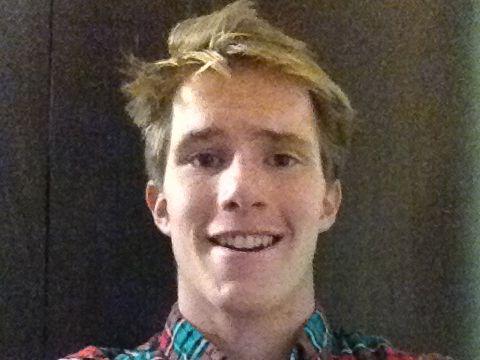
U.S. President Barack Obama, even by his most staunch and bitter adversaries, has never been doubted for his skill as a public speaker. With a shape-shifting voice capable of giving him a sense of conviction, rationality and passion, Obama is often categorized as the greatest of political orators since John F. Kennedy. Or Ronald Reagan, depending on whom you ask.
Politics and our current domestic and foreign policy situations aside, I challenge any American to watch Obama’s “A More Perfect Union” speech from 2008, considered by many to be the greatest political speech of the decade, and not feel a little patriotic. It is hard not to feel a sense of that much-talked about American optimism when you hear speeches like this. Yet it is easy to feel a little pessimism when you compare the situations that Obama describes in his early speeches and think about how much, or how little, those situations have changed.
President Obama is associated with one word more than any other: “CHANGE.” You saw it on those famous Shepard Fairey Obama 2008 campaign posters. You saw it on t-shirts. You saw it everywhere. It was Obama’s defining phrase, a statement of clear purpose and rarely seen audacity in a political slogan. Yet in many ways, that word has come to symbolize Obama’s ultimate irony and, as both Republicans and Obama supporters (myself included) may agree, the promise that he will never fulfill.
Some say our political system inhibits change. Others contend that change requires a true leader and dire situations to come about. For example, Lincoln and Slavery, Johnson and Civil Rights. So it’s interesting to hear what Obama has to say on the subject. In his 2008 presidential acceptance speech, Obama pitched his entire political mantra as both a break from and recognition of our past.
On the subject of change, Obama said, “For 18 long months, you have stood up, one by one, and said, ‘Enough,’ to the politics of the past. You understand that, in this election, the greatest risk we can take is to try the same, old politics with the same, old players and expect a different result. You have shown what history teaches us, that at defining moments like this one, the change we need doesn’t come from Washington. Change comes to Washington.”
This tactic of responding to new circumstances, of keeping policy organic, of responding to currents of change as they arrive on the domestic and global scene and of departing from the past arrogance, tough talk and poor planning of former presidential administrations, has been labeled by some as “The Obama doctrine.” Often, it can seem as though the clear and overall strategy of the Obama administration in both foreign and domestic affairs is to not have a clear and overall strategy.
Hillary Clinton, likely to run in the 2016 presidential election, is attempting to distance herself from the administration she once was a part of, famously describing the failure of Obama’s strategic outlook, saying “Great nations need organizing principles, and ‘Don’t do Stupid Stuff’ is not an organizing principle.”
Until recently, Obama’s strategy and expressed proclivity for change seemed to be associated more with a policy of inaction, isolation and moderation, in essence avoiding “Stupid Stuff” that we had done in the past. It would be surprising to hear that Obama doesn’t have Iraq, Vietnam and Dick Cheney’s crooked grin in his mind’s eye when making decisions related to foreign policy.
Yet with U.S. limited military strikes on the Islamic State of Iraq and the Levant and a call for international coalition against jihadism, the treatment of the United Nations as an agent of progress and not as a nuisance to U.S. foreign interests and the startlingly forceful rhetoric Obama has used in the past two weeks in regards to U.S. strategy in the Middle East, Mr. Obama seems to have finally formulated a strategy he can call his own. It is his combined loathe of past wrongdoings and his recognition of the pressing needs of the present that have combined to change Obama’s character as a leader altogether. Finally, it seems as though Obama is making an effort to combine action with guided principle. And that is the greatest change of all.